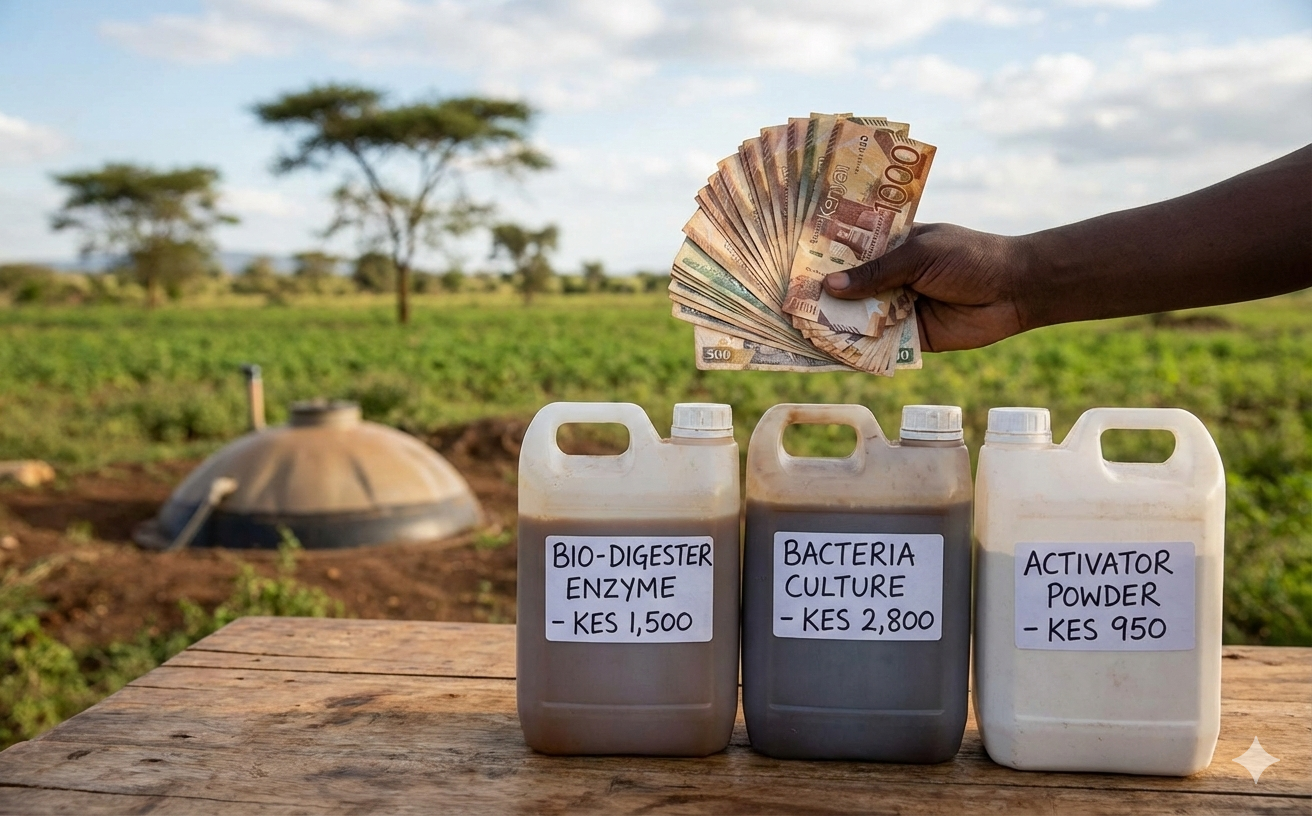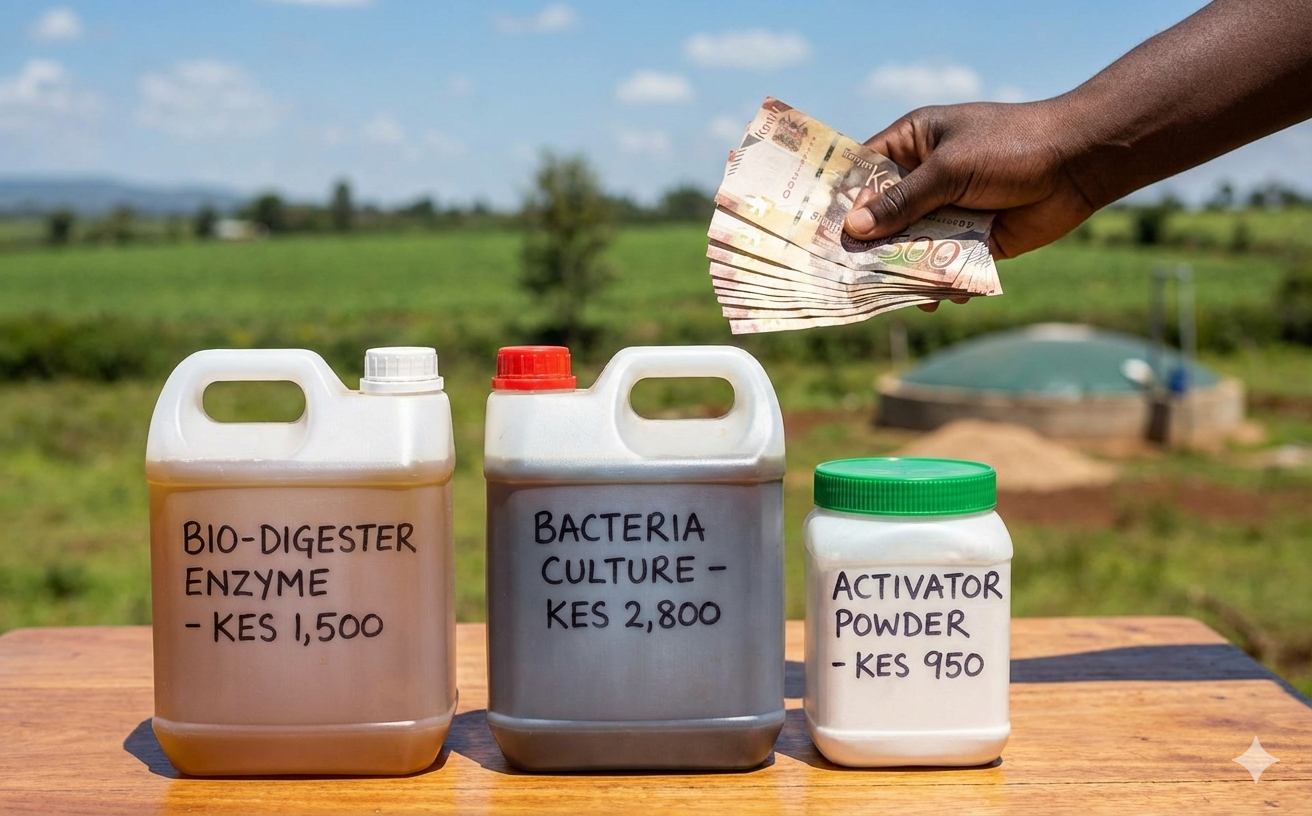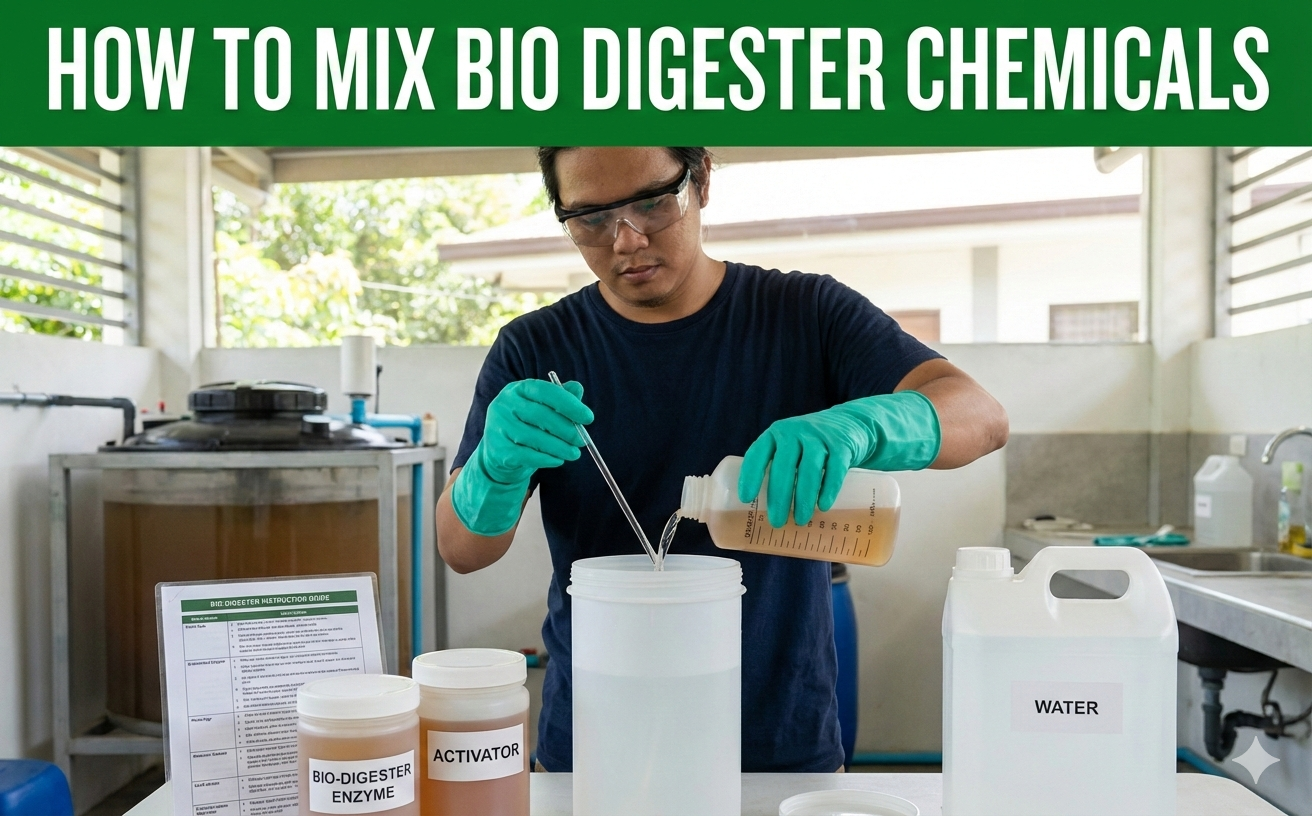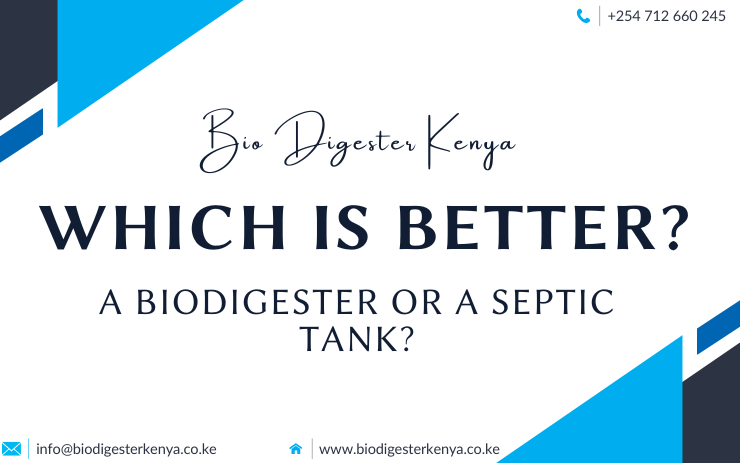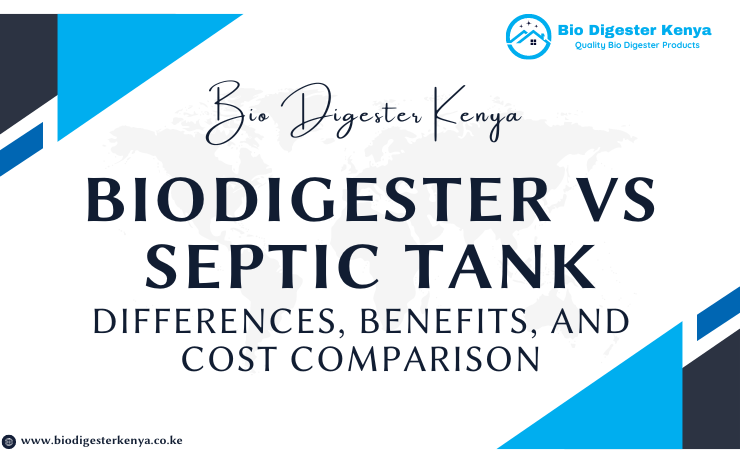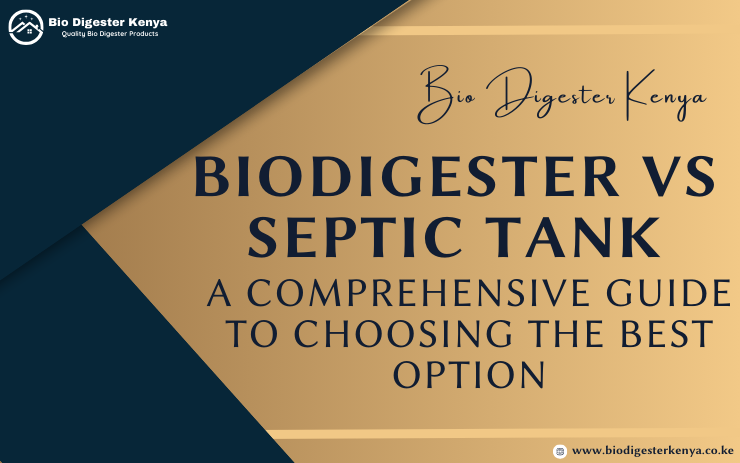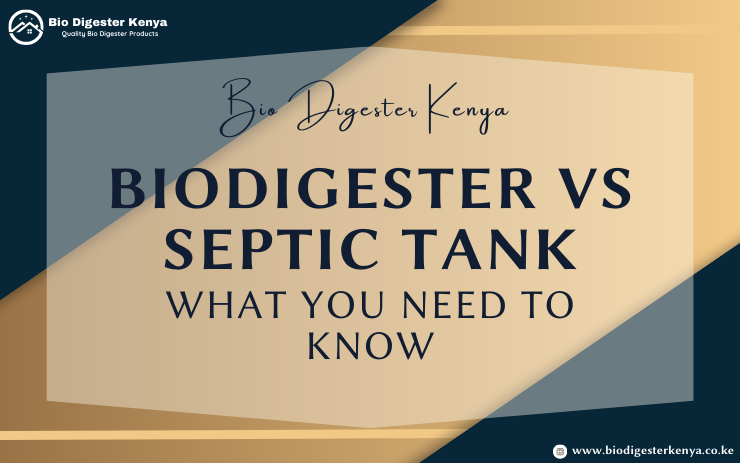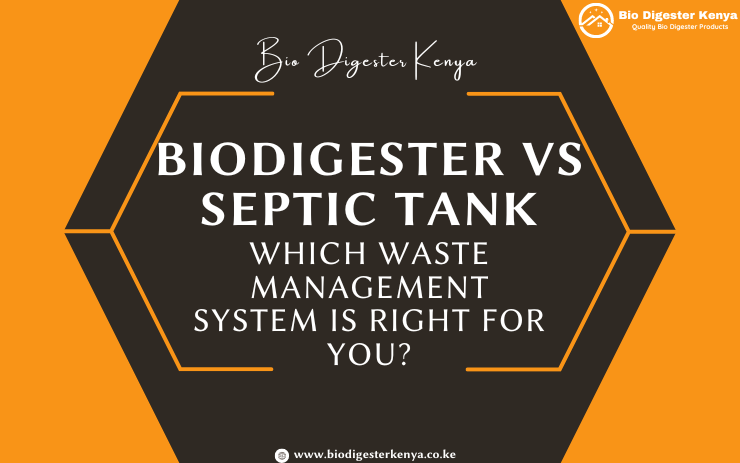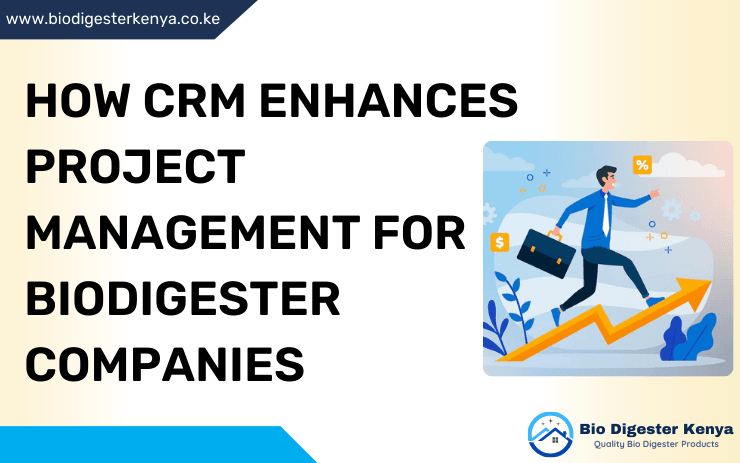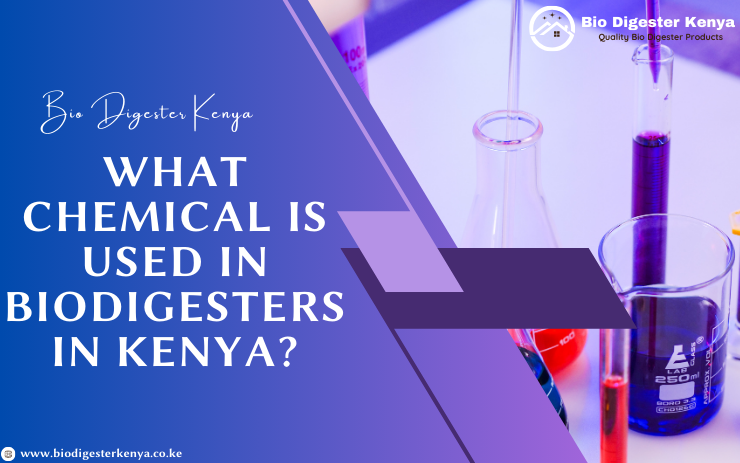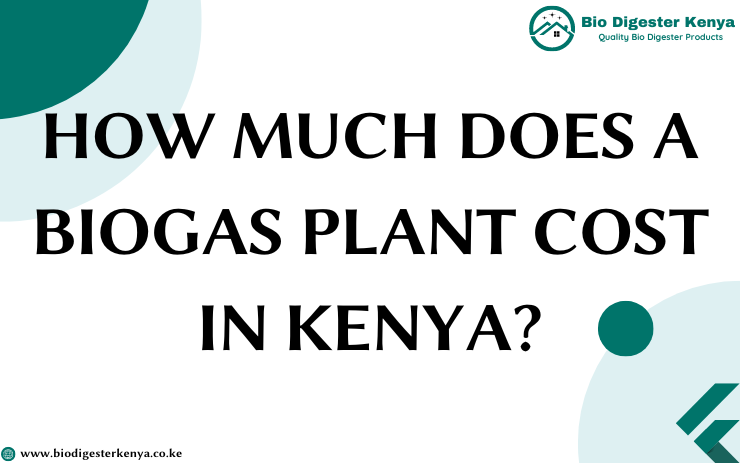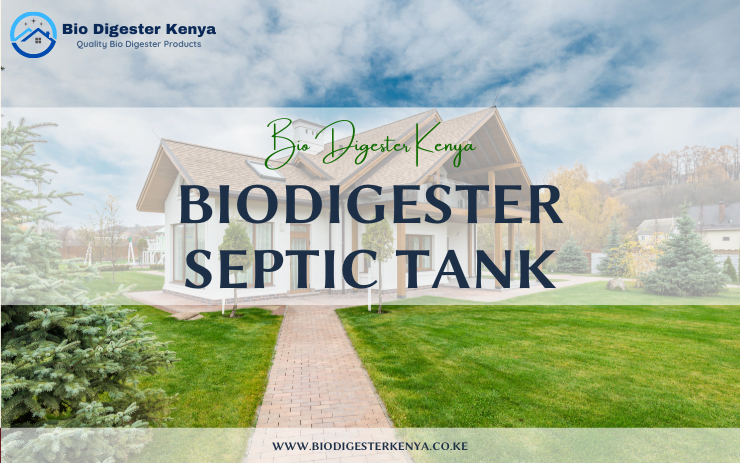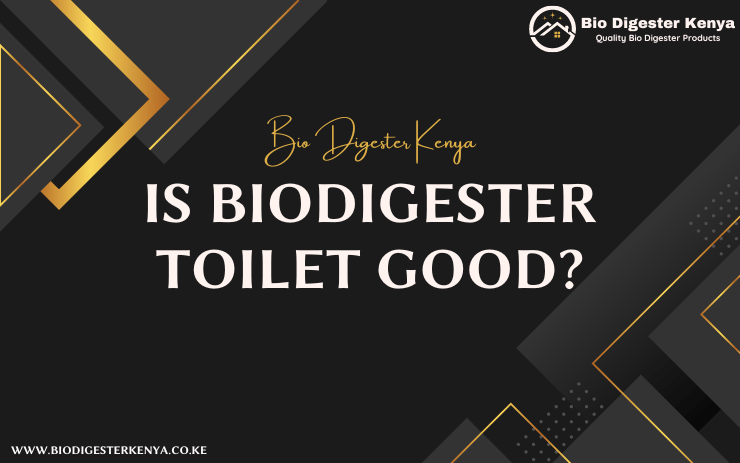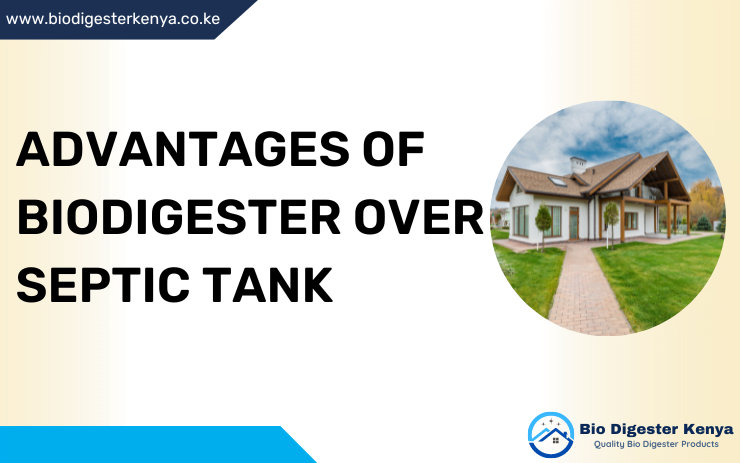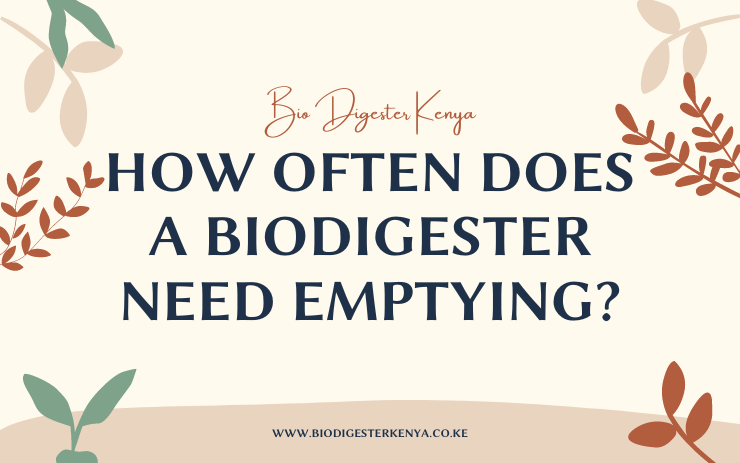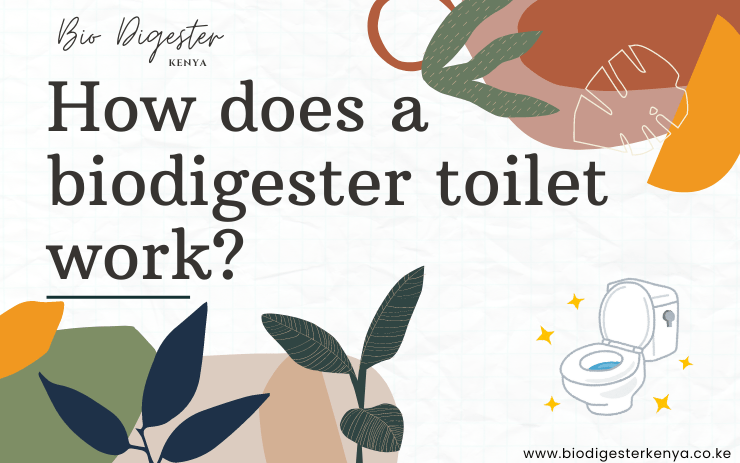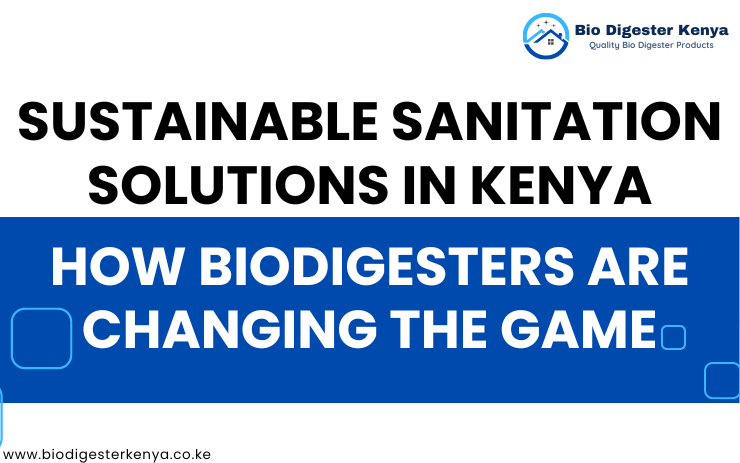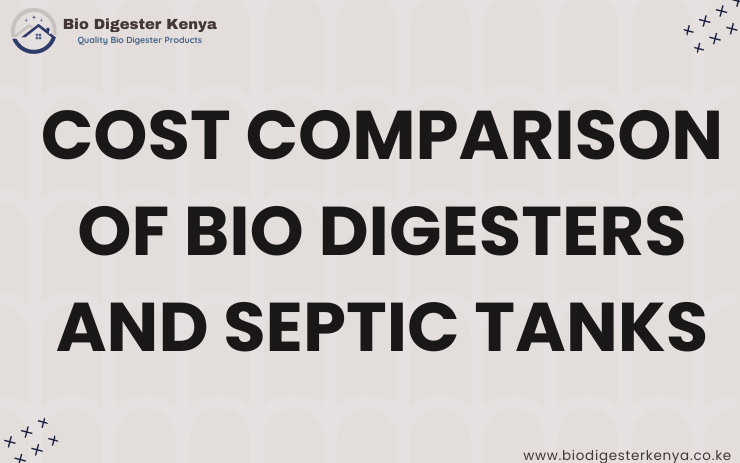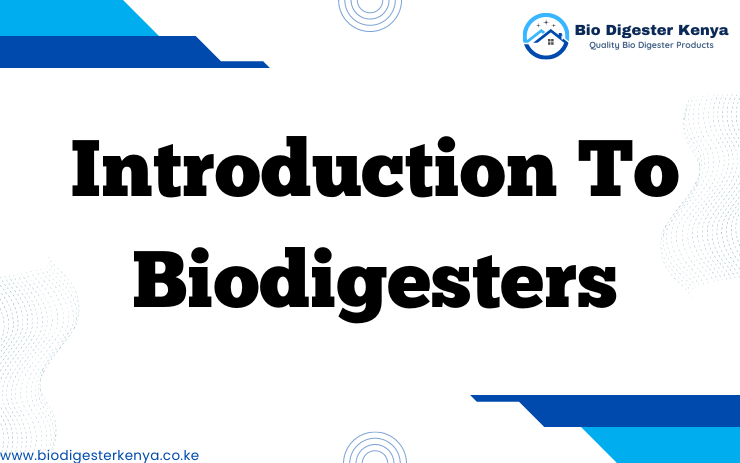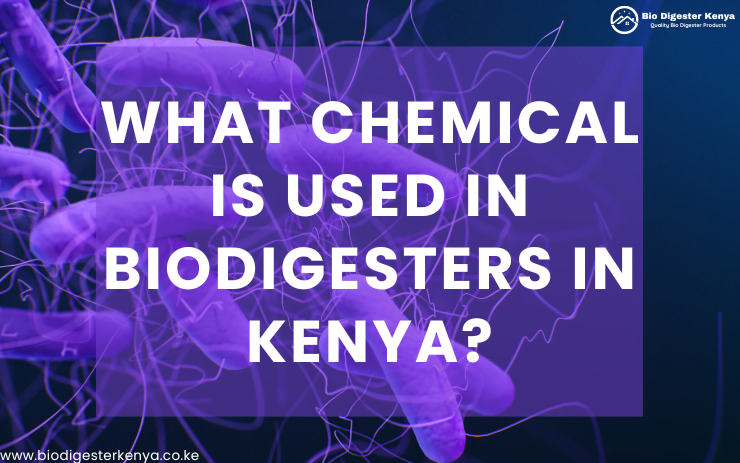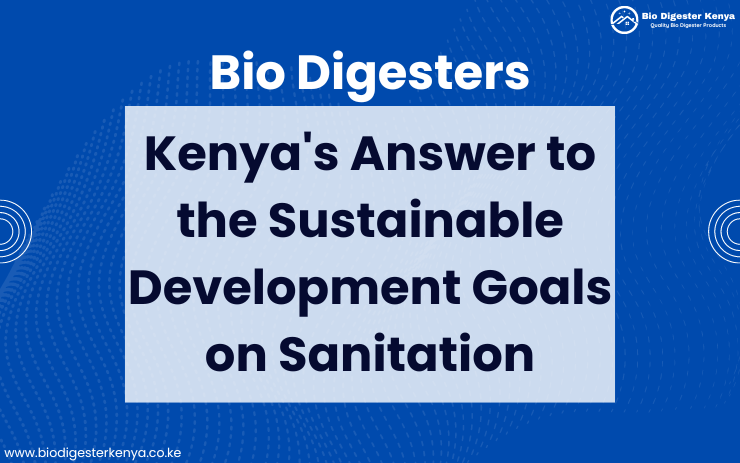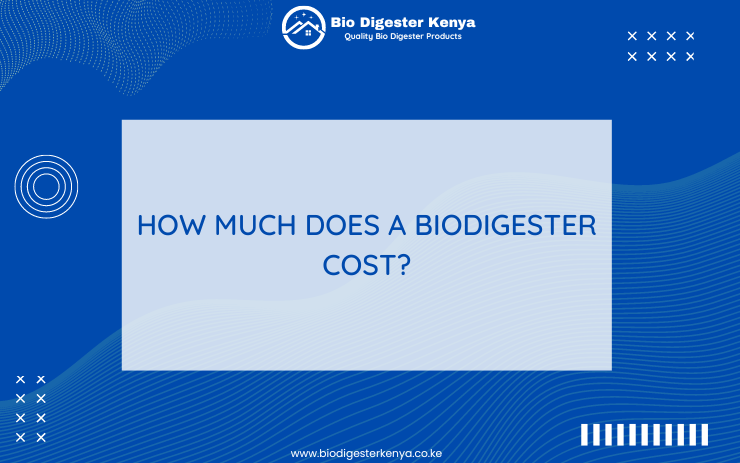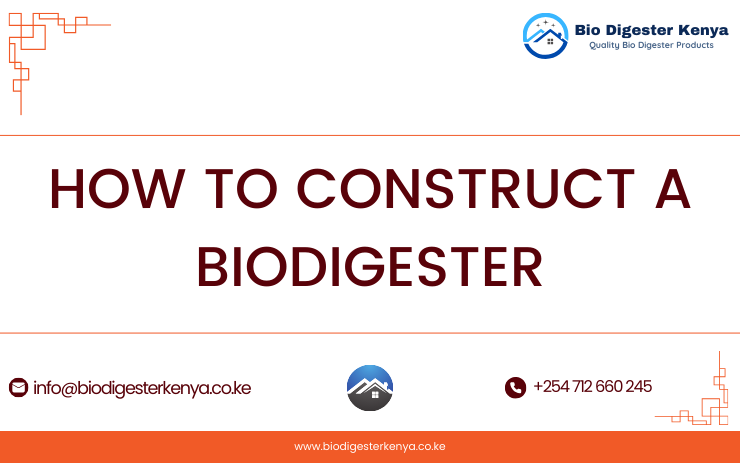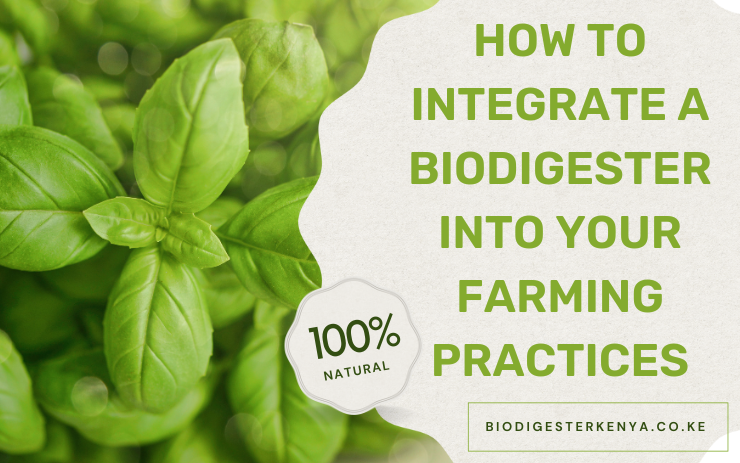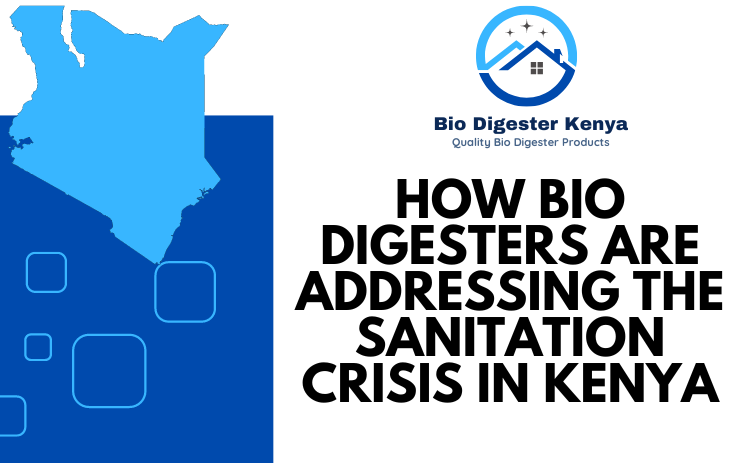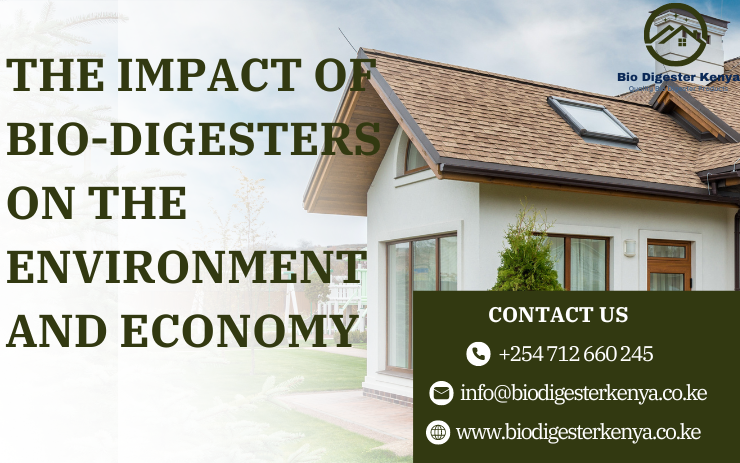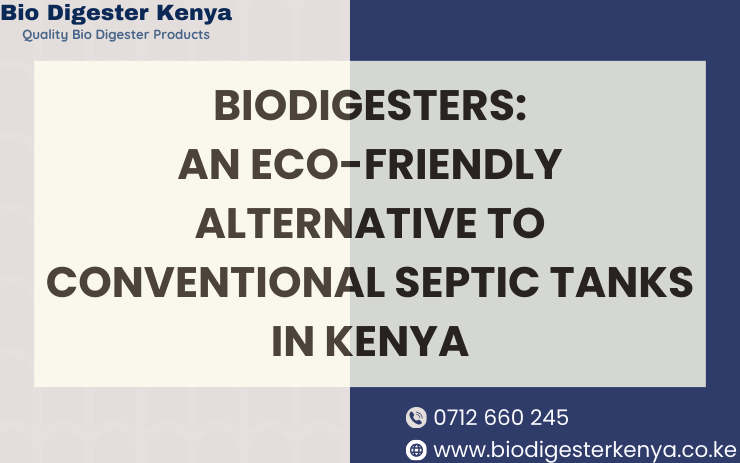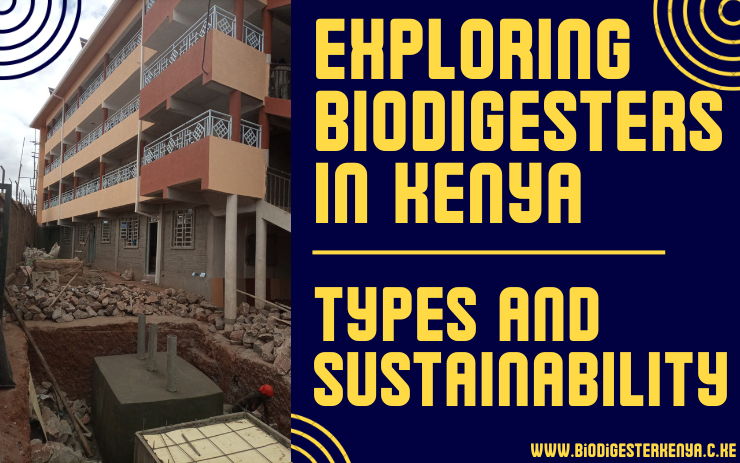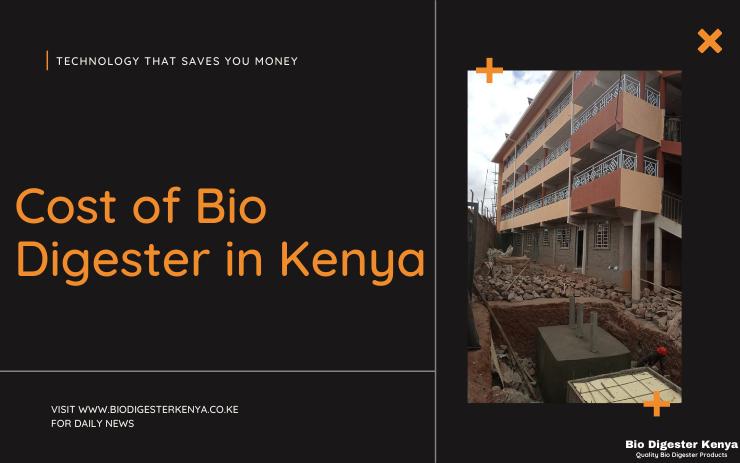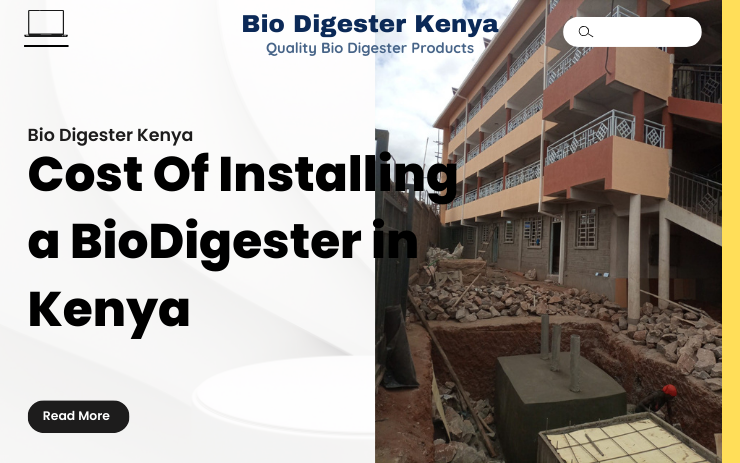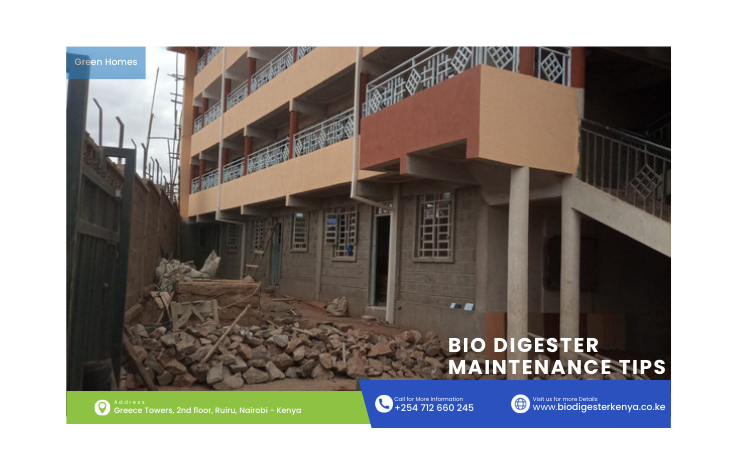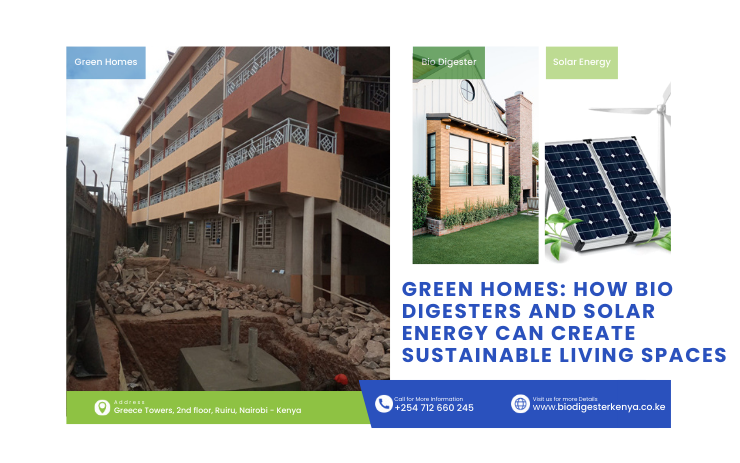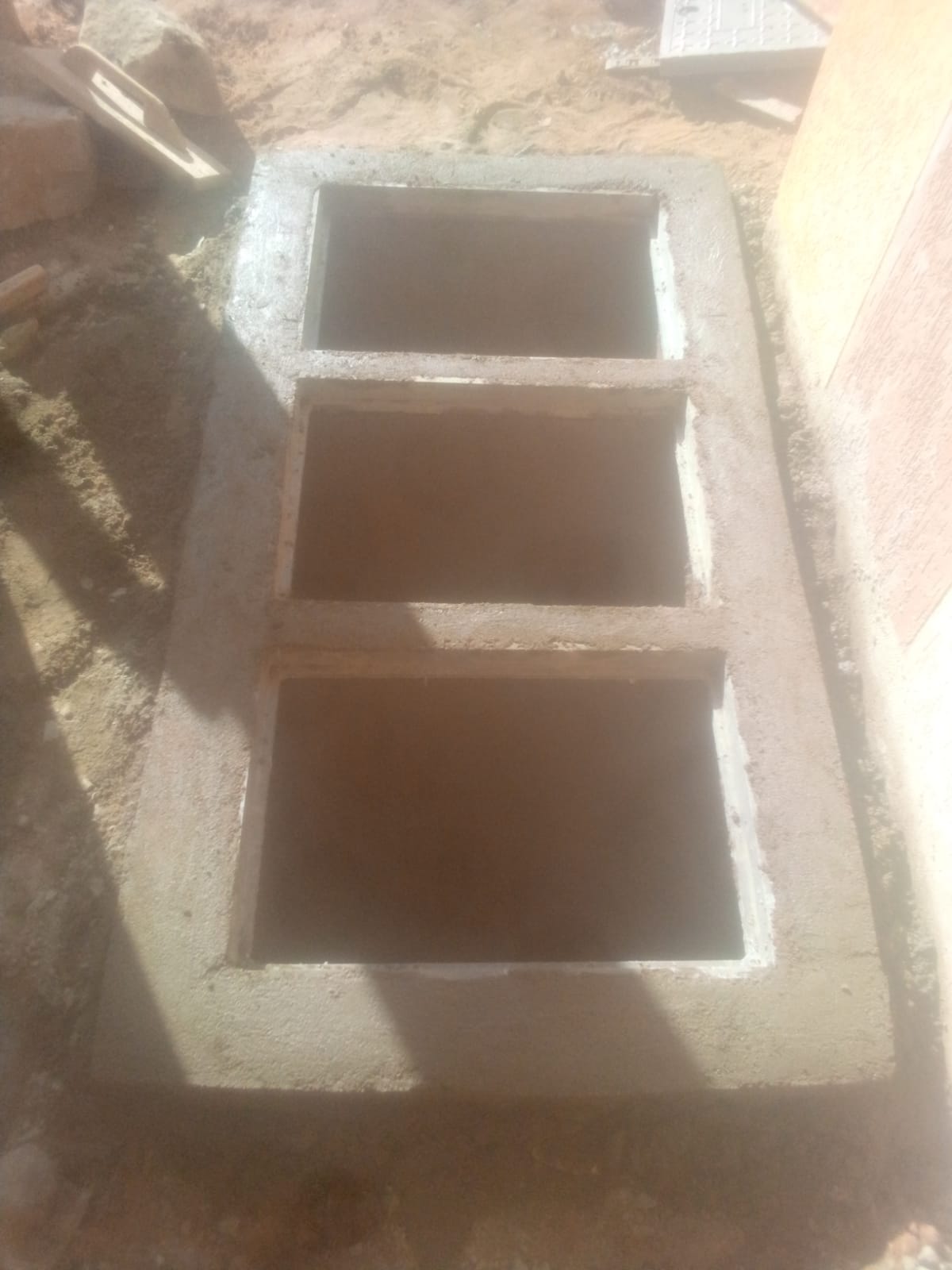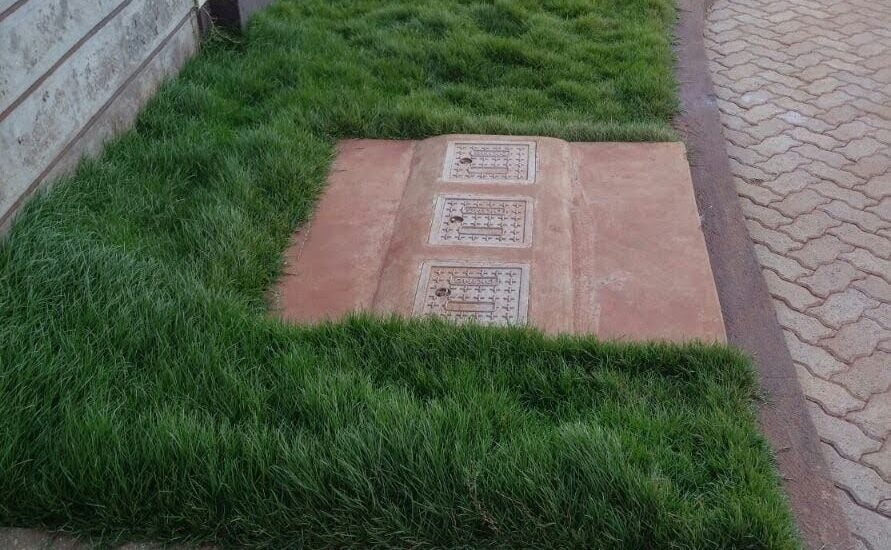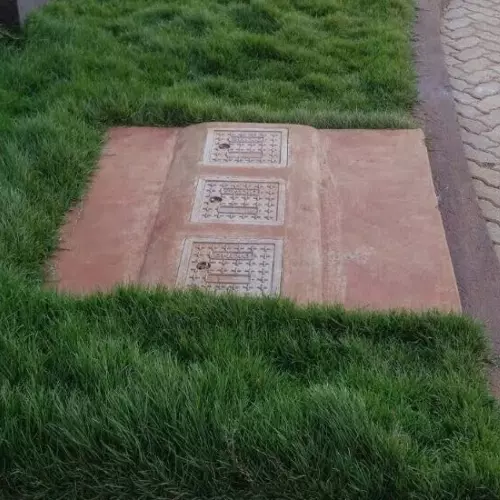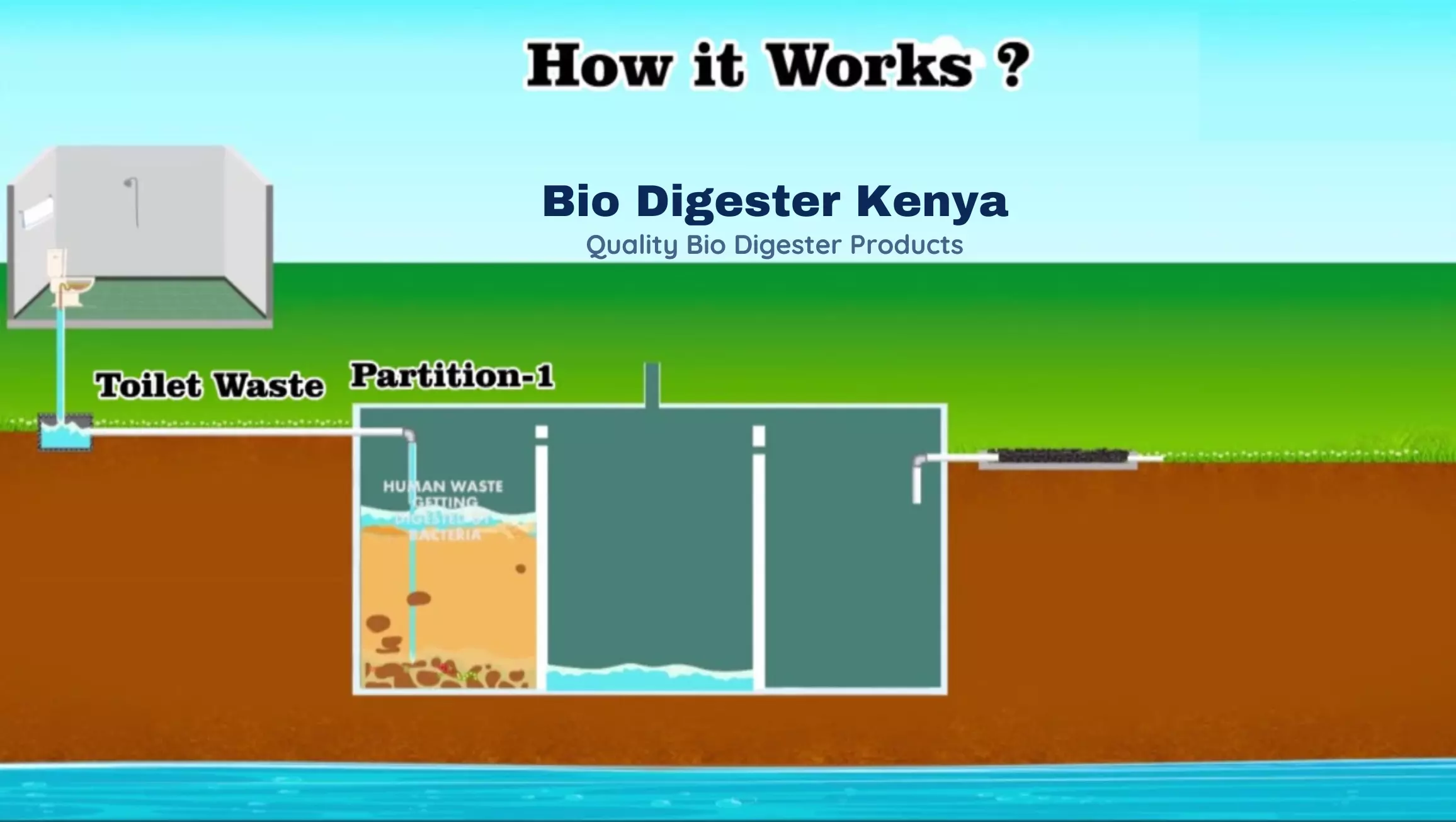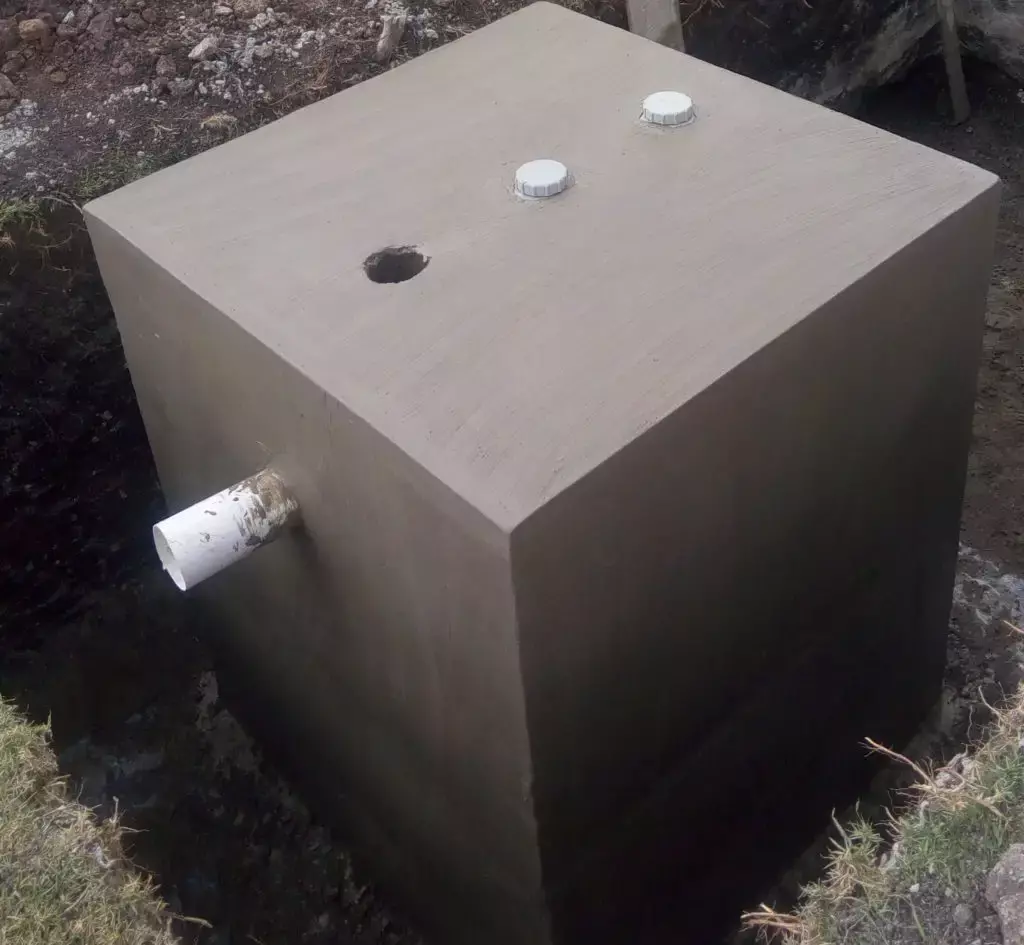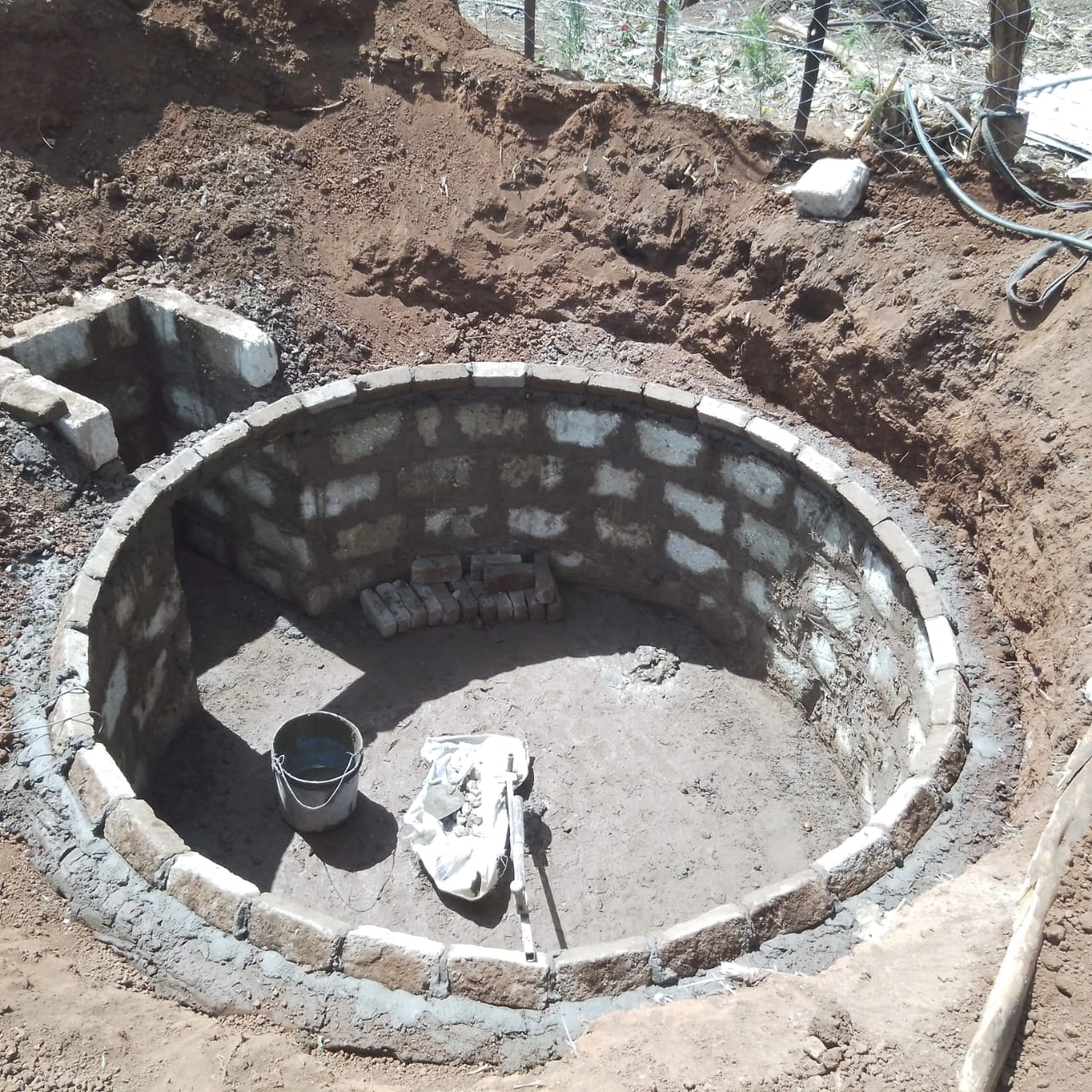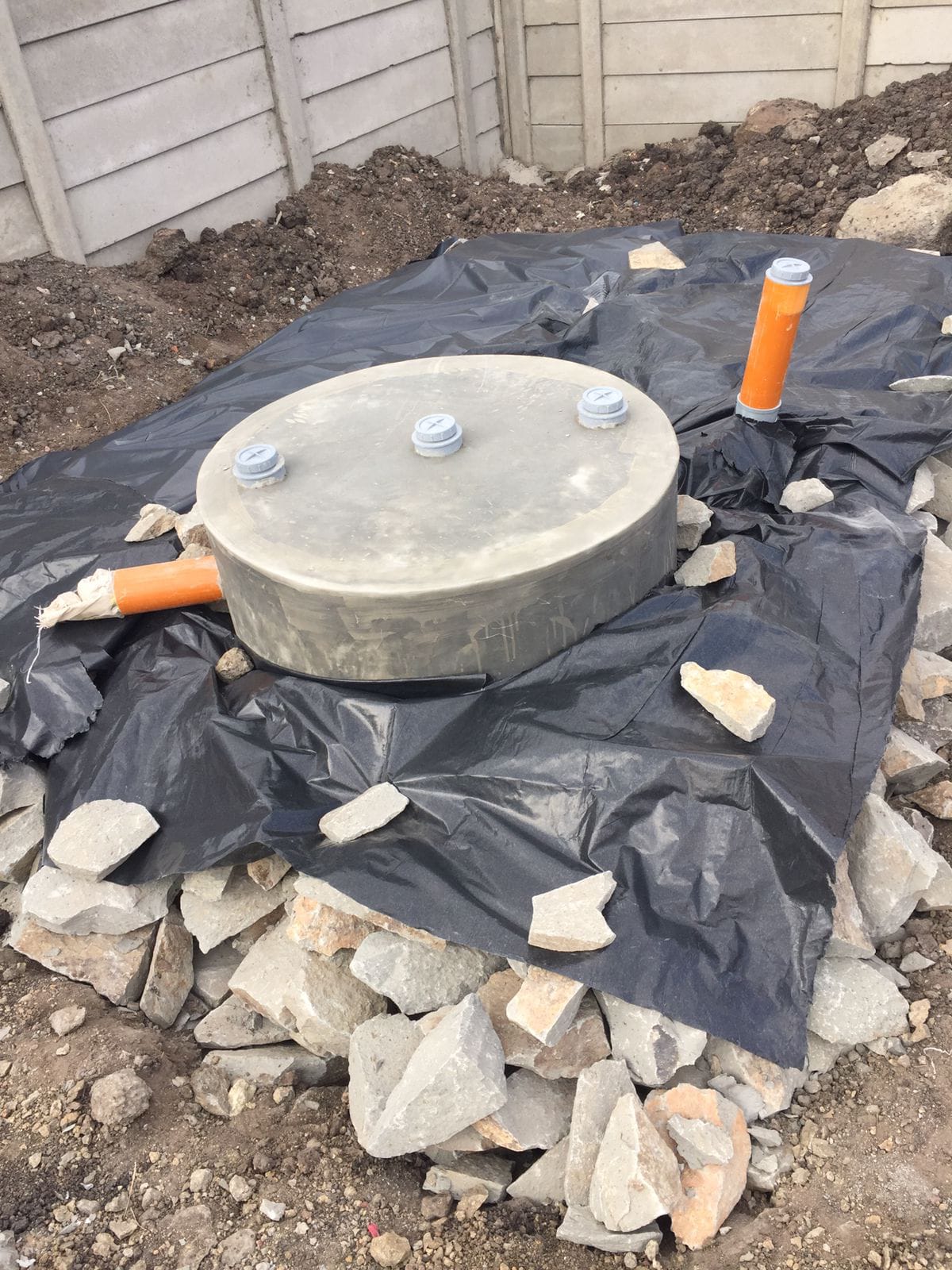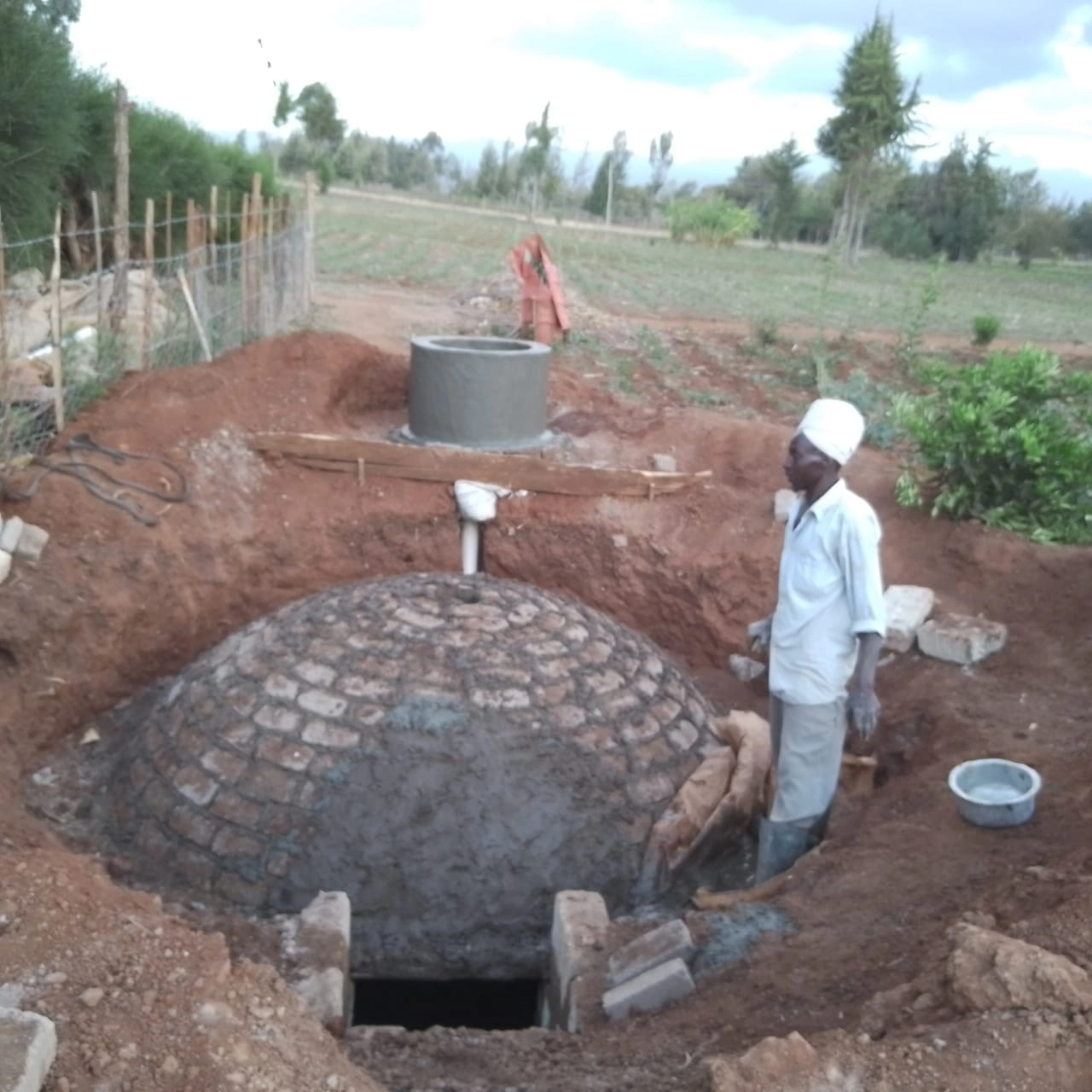Kenya, like many developing countries, faces significant challenges in managing its waste effectively.
With a rapidly growing population and urbanization, the generation of waste has increased exponentially, putting immense pressure on existing waste management systems.
Traditional methods of waste disposal, such as open dumping or burning, are not only environmentally harmful but also pose serious health risks to local communities.
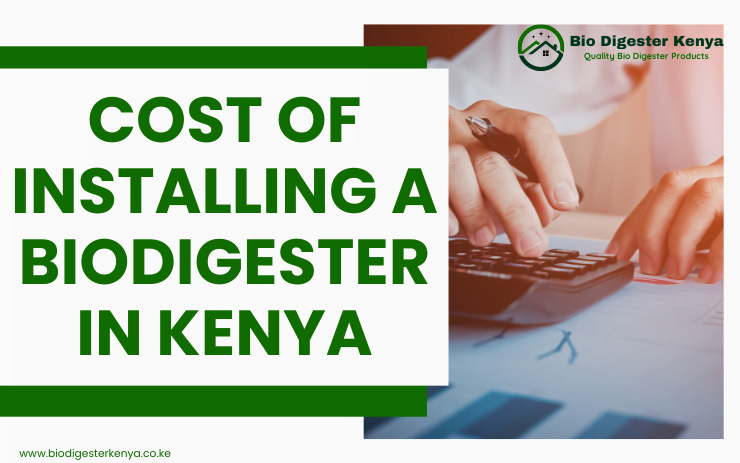
Introduction
Waste management is a critical issue worldwide, and Kenya is no exception.
Traditional septic systems often pose environmental and health risks, but there’s a better solution: bio digesters.
This article explores the cost of installing a bio digester in Kenya, highlighting why it’s a smart investment for both residential and commercial properties.
Understanding Biodigesters
What is a Bio Digester?
A bio digester is an innovative waste management system that uses natural processes to break down human waste.
Instead of relying on traditional methods that can harm the environment, bio digesters employ specialized enzymes to decompose waste into water and biogas, providing a cleaner and more sustainable solution.
How Bio Digesters Work
Human waste is piped into the bio digester, where enzymes break down the waste material.
The byproducts are harmless water, which is absorbed into the ground through a soaking area, and biogas, which can be used as a renewable energy source.
This process not only manages waste efficiently but also contributes to environmental sustainability.
Why Consider a Biodigester in Kenya?
Environmental Benefits
Biodigesters significantly reduce greenhouse gas emissions and prevent groundwater contamination.
Traditional septic tanks often release methane, a potent greenhouse gas, whereas bio digesters convert this methane into usable biogas.
Moreover, the treated water is safe and poses no threat to the environment.
Economic Advantages
While the initial investment might be higher than traditional septic systems, the long-term savings are substantial.
Biodigesters require less maintenance, lower energy costs, and the biogas produced can offset household energy expenses.
Factors Influencing the Cost of a Bio Digester
Size and Capacity
The cost of a biodigester largely depends on its size and capacity.
Larger systems capable of handling more waste will naturally cost more but are necessary for bigger households or commercial properties.
Type of Biodigester
Different types of biodigesters come with varying costs.
Advanced models with additional features like enhanced biogas production or automated maintenance systems might have a higher upfront cost but offer greater efficiency and savings in the long run.
Installation Complexity
The complexity of the installation process also affects the cost.
Factors such as soil type, accessibility of the site, and the existing plumbing infrastructure can influence installation costs.
A site with difficult terrain or requiring extensive groundwork will increase the overall expense.
Detailed Cost Breakdown
Initial Costs
The initial costs include the purchase of the biodigester unit, installation, and any necessary modifications to your existing plumbing system.
On average, the cost of a residential biodigester system in Kenya ranges from KSh 95,000 to KSh 150,000, while larger commercial systems can cost upwards of KSh 300,000.
Ongoing Maintenance Costs
Biodigesters are designed to be low-maintenance. However, periodic enzyme refills are necessary to ensure efficient operation.
These refills are relatively inexpensive, typically costing around KSh 2,000 to KSh 5,000 per year. Routine checks and minor maintenance might add an additional KSh 5,000 annually.
Comparing Bio Digesters to Traditional Septic Tanks
Cost Comparison
While traditional septic tanks may have a lower initial cost, they often require frequent pumping and maintenance, leading to higher long-term expenses.
Biodigesters, with their lower maintenance requirements, offer significant savings over time.
Efficiency and Longevity
Biodigesters are more efficient in waste breakdown and have a longer lifespan compared to traditional septic tanks.
This means fewer replacements and less hassle, making biodigesters a more sustainable and cost-effective choice.
Case Study: Residential Installation
Overview
A family in Nairobi decided to install a biodigester to manage their household waste.
The installation process was straightforward and took only a few days.
Costs Involved
The total cost for the installation was KSh 100,000, including the bio digester unit and installation fees. Annual maintenance costs are around KSh 7,000.
Benefits Realized
The family experienced immediate benefits, including reduced odors and lower water bills. The biogas produced is used for cooking, further reducing their household expenses.
Case Study: Commercial Installation
Overview
A commercial apartment complex in Mombasa implemented a biodigester system to manage waste from its numerous residents.
Costs Involved
The installation cost was approximately KSh 400,000 due to the larger size and increased capacity required. Annual maintenance costs are about KSh 20,000.
Benefits Realized
The bio digester has significantly lowered maintenance costs and improved waste management efficiency.
The biogas produced is utilized in communal kitchens, providing a sustainable energy source and reducing operational costs.
Bio Digester Kenya
Your Partner in Waste Management
At Bio Digester Kenya, we are committed to providing top-quality biodigesters and exceptional customer service.
Our systems are designed to meet the unique needs of both residential and commercial clients in Kenya.
About Our Services
We offer comprehensive services, including consultation, custom design, installation, and maintenance.
Our team of experts ensures that your biodigester is installed correctly and operates efficiently.
Why Choose Us
With years of experience and a dedication to sustainability, Bio Digester Kenya is the trusted choice for biodigester installations.
We are passionate about helping our clients achieve a cleaner and greener future.
How to Get Started with Bio Digester Kenya
Initial Consultation
The process begins with an initial consultation where we assess your needs and provide a tailored solution.
We take into consideration your waste management requirements, site conditions, and budget.
Custom Design and Installation
Once the design is finalized, our skilled technicians handle the installation, ensuring that everything is set up properly.
We provide thorough training on the operation and maintenance of your biodigester.
Maintaining Your Bio Digester
Routine Maintenance Tips
To ensure your bio digester operates efficiently, perform routine checks for leaks and blockages.
Keep the inlet and outlet pipes clear and ensure the enzymes are working effectively.
When to Refill Enzymes
Refill the biodigester with enzymes periodically to maintain optimal waste breakdown.
Bio Digester Kenya offers high-quality enzymes specifically formulated for our systems.
Frequently Asked Questions
1. How long does a bio digester last?
A well-maintained biodigester can last for many years, often exceeding the lifespan of traditional septic systems.
2. Are biodigesters safe for the environment?
Yes, biodigesters are designed to minimize environmental impact by reducing greenhouse gas emissions and preventing groundwater contamination.
3. How often do you need to maintain a biodigester?
Biodigesters require minimal maintenance compared to traditional septic tanks. Routine checks and periodic enzyme refills are usually sufficient.
4. Can bio digesters handle all types of waste?
Biodigesters are primarily designed for organic waste, such as human waste, food scraps, and agricultural residues. They are not suitable for non-organic waste.
5. What happens to the water produced by a biodigester?
The water produced by a biodigester is safe and can be absorbed by the ground. It is typically sent to a soaking area where it is naturally filtered by the soil.
Conclusion
Choosing a biodigester septic tank for your home or commercial property offers numerous benefits, including cost savings, environmental sustainability, and improved waste management efficiency.
Biodigester Kenya is here to help you make the transition to a cleaner, greener future. Contact us today to learn more about our products and services and take the first step towards sustainable waste management.


